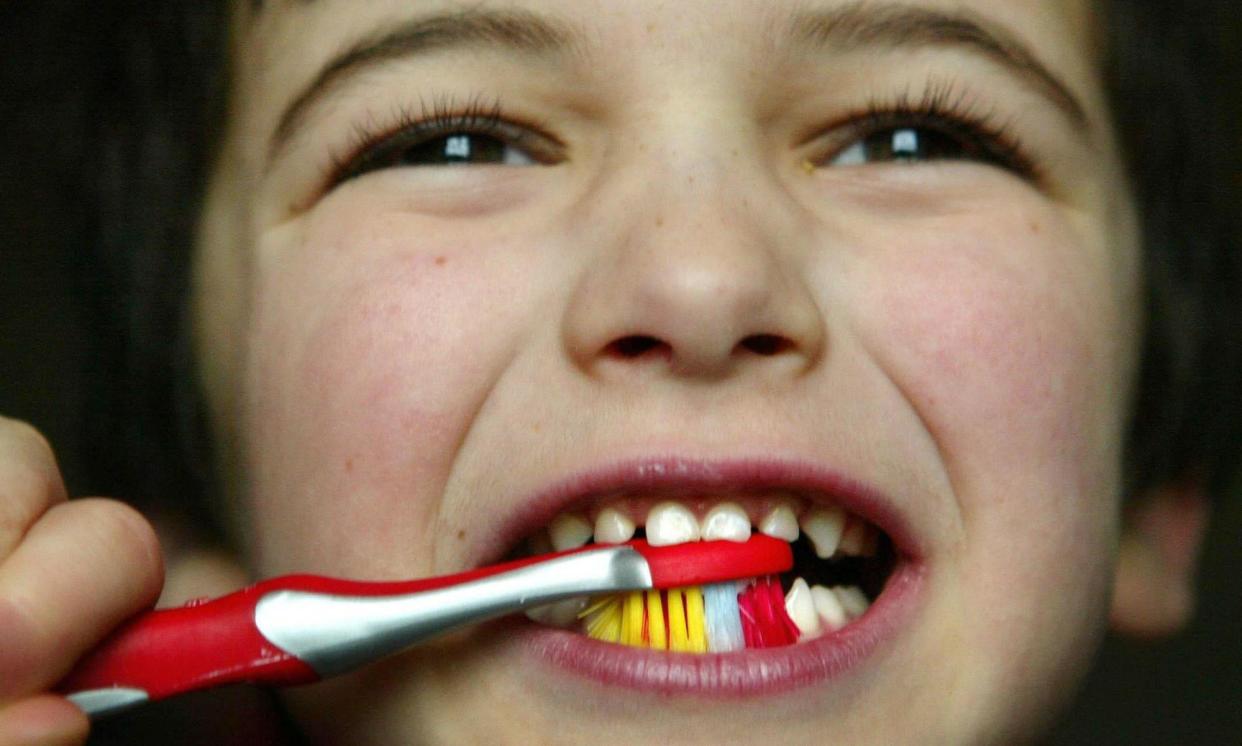Starmer to embrace ‘nanny state’ with plan for toothbrushing in schools

Keir Starmer has said he is “up for the fight” of defending the “nanny state” as he announced plans to improve child health under a Labour government, including supervised toothbrushing in schools.
The Labour leader said that children were “probably the biggest casualty” of the Tories’ sticking-plaster approach to politics over the past 14 years, adding that, if the government were a parent, they could be charged with neglect.
“I know that we need to take on this question of the nanny state,” he told reporters ahead of a visit to a children’s hospital. “The moment you do anything on child health, people say ‘you’re going down the road of the nanny state.’ We want to have that fight.”
Writing for the Guardian, Starmer added: “More children are becoming unhealthy, with two in every five leaving primary school overweight. But most damning of all, the number one reason for young children being admitted to hospital is to extract rotten teeth – because it is so difficult to get NHS dental treatment before tooth decay sets in.
“And incredibly, after 14 years of the Tories, the rise in life expectancy has stalled.”
The height of the average British five-year-old girl has fallen by 27 places in the Organisation for Economic Co-operation and Development (OECD) rankings over the past three decades, and boys by 33 places, while the UK is estimated to have more obese children than France, Germany, Poland and Slovenia. Added to this, about 250,000 British children are now on mental-health waiting lists.
Labour’s action plan includes a 9pm watershed for junk-food ads, banning vape adverts aimed at children, a free breakfast club in every primary school, better access to mental-health support, cutting waiting times for hospital care for children, and guaranteeing more dental appointments.
Starmer said that his plans, which would be introduced in the first term of a Labour government, were just the “first steps” needed to improve the health of British children. “This is something we acknowledge is going to take time, and we’re not pretending that everything can be turned around in weeks or months.”
The Labour leader, who will make fortnightly visits around the country to set out the detail of his five missions for government, said supervised tooth-brushing for three- to five-year-olds was needed because the biggest cause of hospital admissions up to the age of 10 is decayed teeth.
“I don’t think you can simply say, ‘Well, that’s none of our business.’ It is our business because it’s the health of the child. But also, once you’ve got a child admitted to hospital, it’s costing the taxpayer a fortune,” he added.
“I’m not saying it’s the state and not parents, it’s got to be both, but just to sort of walk on the other side and say, ‘It’s not our responsibility, who cares if six- to 10-year-olds are going into hospital with tooth decay?’ I’m up for that fight.”
He said that critics of state intervention had to explain how they wanted to cut taxes because health bills “will never come down” if children are in hospital with tooth problems.
Under Labour’s plans, which Starmer said were fully costed, there would be mental-health support provided in every school, community mental-health hubs aimed at under-25s and 8,500 new mental-health professionals recruited.
Geoff Barton, general secretary of the Association of School and College Leaders, welcomed the plans, but added: “All of this needs to be properly resourced – with sufficient staffing and funding to ensure that these pledges become reality, and a sensible delineation of expectations on schools, healthcare and parents.”
Paul Whiteman, general secretary of school leaders’ union NAHT, said: “Labour’s focus on and proposals for greater mental-health support are welcome, but it must be recognised that significant investment will be required to rebuild the health and support services that have been so eroded over the last decade.”
The British Dental Association chairman, Eddie Crouch, said: “Supervised brushing is a tried and tested policy, that the government’s own modelling shows pays for itself. It’s a scandal that decay remains the number one reason for hospital admissions among young children. Prevention isn’t just better than cure, it’s cheaper, too.”
• In the UK, the charity Mind is available on 0300 123 3393 and Childline on 0800 1111. In the US, call or text Mental Health America at 988 or chat 988lifeline.org. In Australia, support is available at Beyond Blue on 1300 22 4636, Lifeline on 13 11 14, and at MensLine on 1300 789 978

 Yahoo News
Yahoo News 
